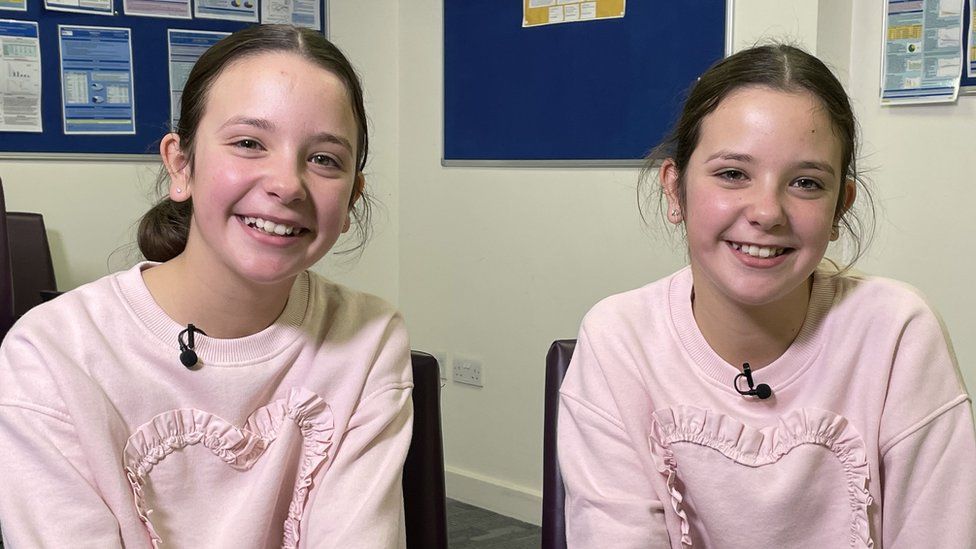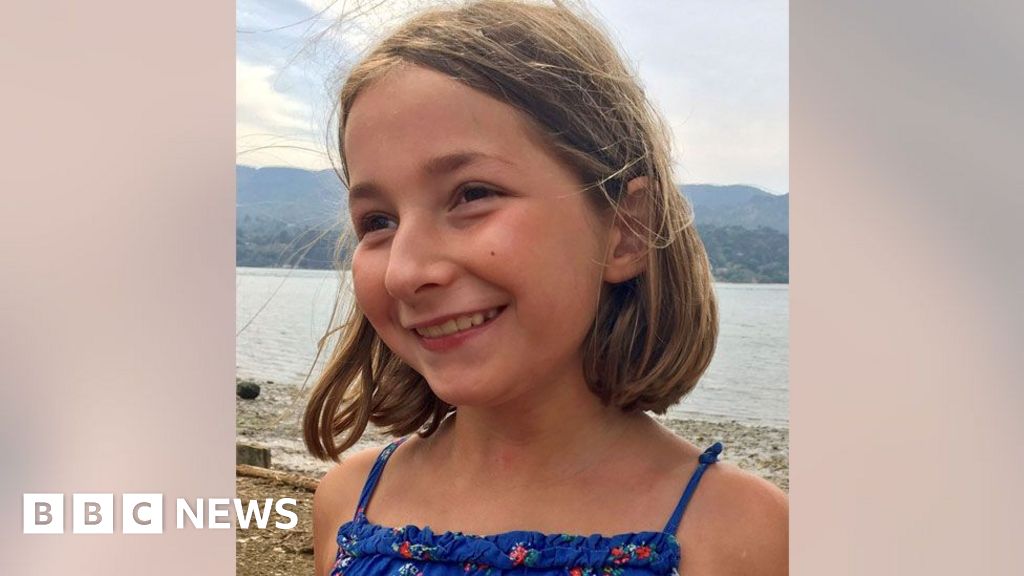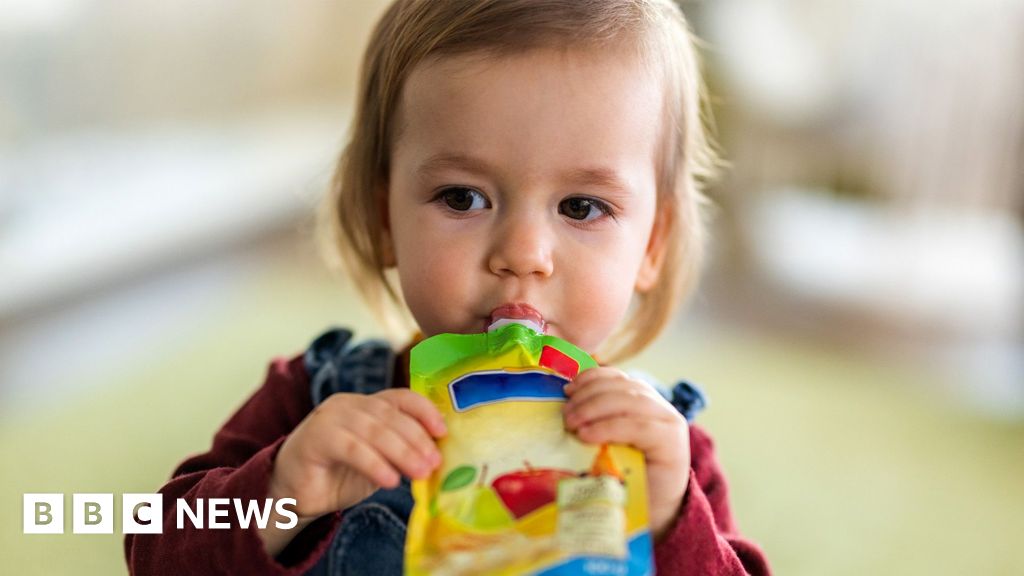ARTICLE AD BOX

Ruby (left) and Rosie (right) were separated when they were just 24 hours old
By Fergus Walsh
Medical editor
Twins Ruby and Rosie are proud to have once been conjoined.
The 11-year-olds from south-east London were born joined by the intestine and abdomen and were separated when they were just 24 hours old.
They are among six sets of conjoined twins brought together by London's Great Ormond Street Hospital (GOSH) for a pizza party.
All attend GOSH as part of their continuing healthcare with specialist teams across the hospital.
Ruby tells me: "We obviously do fight a lot… but we will always have that bond that we will be sisters forever and love each other forever."
Conjoined twins develop when an early embryo only partially separates to form two individuals and they remain physically connected. They are most often joined at the chest, abdomen or pelvis.
It is rare, representing about one in every 500,000 live births in the UK, meaning one set of conjoined twins is born each year in Britain, on average.
Image source, BBC
Image caption,Ruby and Rosie with their mum Angela
Ruby and Rosie have already had five lots of surgery and face more in the future.
Their mum, Angela Formosa, said: "We were told they wouldn't survive the pregnancy - and possibly not after surgery - and now they are at secondary school and doing incredibly well."
She added: "It's really nice for them to see other twins that started out life the way they did because there are so few of them."
Also at the pizza party were 13-year-old brothers Hassan and Hussein, from Cork in the Republic of Ireland.
They were born joined at the chest, sharing a pelvis, several organs and one pair of legs. Once separated, they ended up with one leg each.
Hassan (left) and Hussein (right) were separated when they were four months old
The boys were separated at GOSH at four months old and have since undergone at least 60 surgeries between them.
They compete in a wide variety of sports, from athletics to wall climbing, and would like to represent Ireland at the Paralympics.
Hassan told me what motivates him: "Getting up every day and trying my best and knowing I can do anything any other child can do."
Hussein said: "I like [wheelchair] basketball because it's fast and you can crash into people!"
Their mum, Angie Benhaffaf, told me: "From the very first scan at 12 weeks they were given no hope of survival but to see them, over 60 surgeries later, is amazing. They have not let this define them.
"It's really important for me and the boys to meet other children that have been born in extraordinary circumstances. They are a special group and it's good to know they are not alone in the world."
GOSH performed its first successful separation of conjoined twins in 1985 and has cared for 38 sets in total.
Consultant paediatric surgeon Paolo De Coppi said he believes GOSH has separated more conjoined twins than any other hospital in the world.
He told the BBC: "The operation to separate is risky and then further revision surgeries are needed as children grow, so it is important that parents know it is a life journey and not just a few months in hospital."
Also enjoying the party were seven-year-old sisters Marieme and Ndye, from Cardiff, who have not been separated.
Marieme (left) and Ndeye (right)
Their father Ibrahima and the surgical team agreed that it would be too risky.
Prof De Coppi: "They couldn't be separated because they support each other and if you did separate, one would certainly not make it but also possibly the other twin.
"These are difficult decisions because we know they are struggling together but they also have a joyful life that we couldn't guarantee with a separation."
The twins were brought to the UK from Senegal in 2017 for treatment at GOSH.
Zion and Zayne, aged six months, with their family
The youngest of the six sets of twins, Zion and Zayne, were born in April and were separated when they were a few weeks old.
Issie and Annie, 19 months old, were separated in September last year.
Annie (left) and Issie (right)
The success of surgery depends on where the twins are joined and how many and which organs are shared. It also depends on the experience and skill of the surgical team.
Prof De Coppi said: "The teamwork starts even before the surgery to ensure we make the right decisions, some of which need to be taken while we are operating.
"But it is even more important once the surgical journey is finished - it really is a team effort across the hospital.
"Bringing all the children together is very rewarding for us but also for the families as they see what others have gone through - the same difficulties but also the same joy."
Around the BBC
Related Internet Links
The BBC is not responsible for the content of external sites.

 1 year ago
44
1 year ago
44








 English (US) ·
English (US) ·